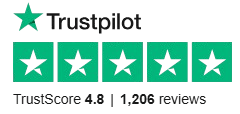
Differences Between Secured And Unsecured Loans
Deciphering Secured vs. Unsecured Business Loans: What UK SMEs Need to Know Navigating the business loans market in the UK can often feel like solving…
We have partnered with Funding Options so you can compare over 120 lenders to find the right finance partner for you.

Some of the lenders compared….
At Simply Business Loans we have partnered with Funding Options to bring you access to over 120+ lenders. Funding Options provides you with one simple application process that delivers uniquely tailored loan solutions for your business. Their technology, Funding Cloud, will accurately validate your business profile, matching you to the industry’s largest lender network.
Start with how much you need to borrow, what it’s for, and basic information about your business.
Smart technology at Funding Options will compare up to 120+ lenders and match you with matched finance options
Help is provided to you during application process to receiving your funds. It’s free to apply and it doesn’t affect your credit score
Unsecured loans can be a flexible financing option for UK small businesses and SMEs that don’t want to pledge collateral. Here’s a guide to help you understand unsecured loans, their key features, and which businesses they best suit.
No Collateral Required:
Overview: Borrowers don’t need to pledge business or personal assets to secure the loan.
Benefit: Reduces risk of asset repossession in case of default.
Quick Approval Process:
Overview: Lenders focus on creditworthiness and business performance, often approving loans within days.
Benefit: Provides fast access to funds for urgent financial needs.
Flexible Loan Amounts:
Overview: Typically ranges from £5,000 to £250,000, depending on creditworthiness and business financials.
Benefit: Suitable for covering a wide range of business expenses.
Short to Medium Repayment Terms:
Overview: Repayment terms generally range from 6 months to 5 years.
Benefit: Helps businesses manage cash flow without long-term debt commitments.
Higher Interest Rates:
Overview: Interest rates are usually higher than secured loans due to increased lender risk.
Benefit: No collateral required, but higher rates may increase the overall cost of borrowing.
Established Businesses with Strong Credit:
Overview: Ideal for companies with solid credit histories and consistent revenue streams.
Reason: Increases the chances of approval at competitive rates.
Businesses Without Valuable Assets:
Overview: Suitable for businesses lacking significant assets to use as collateral.
Reason: Unsecured loans provide access to funds without pledging property or equipment.
Businesses with Immediate Funding Needs:
Overview: Perfect for covering short-term expenses or working capital needs.
Reason: Quick approval and disbursement provide immediate financial support.
Small to Medium-Sized Businesses:
Overview: Useful for SMEs seeking modest funding without the complications of collateral requirements.
Reason: Flexible amounts and repayment terms meet the specific needs of smaller businesses.
Define Your Funding Needs:
Determine the loan amount required and suitable repayment terms for your business.
Compare Interest Rates and Fees:
Review Annual Percentage Rates (APR) and any hidden fees like arrangement or early repayment charges.
Check Eligibility Requirements:
Lenders have varying criteria for credit scores, business age, and turnover.
Consider Other Loan Types:
Compare unsecured loans with alternatives like credit lines or invoice financing.
Seek Professional Advice:
Consult financial advisors or business mentors to identify the best funding solution.
Unsecured loans can provide small businesses and SMEs with quick, flexible funding without the need for collateral. However, comparing different unsecured loan options can help save money and ensure you choose the best solution for your business needs.

Deciphering Secured vs. Unsecured Business Loans: What UK SMEs Need to Know Navigating the business loans market in the UK can often feel like solving…

Navigating the Landscape of UK Business Loans: What You Need to Know As the backbone of the British economy, small to medium-sized enterprises (SMEs) are…

The Key Takeaways The 2024 UK budget was announced on October 30th 2024. It is the first budget of the Labour government in 14 years.…
About This Information
Our articles, guides & reviews are provided as generic information only. Any expressed view, product or service mentioned within these does not constitute as financial advice or recommendation by us.
Be mindful that information may have changed since publication.